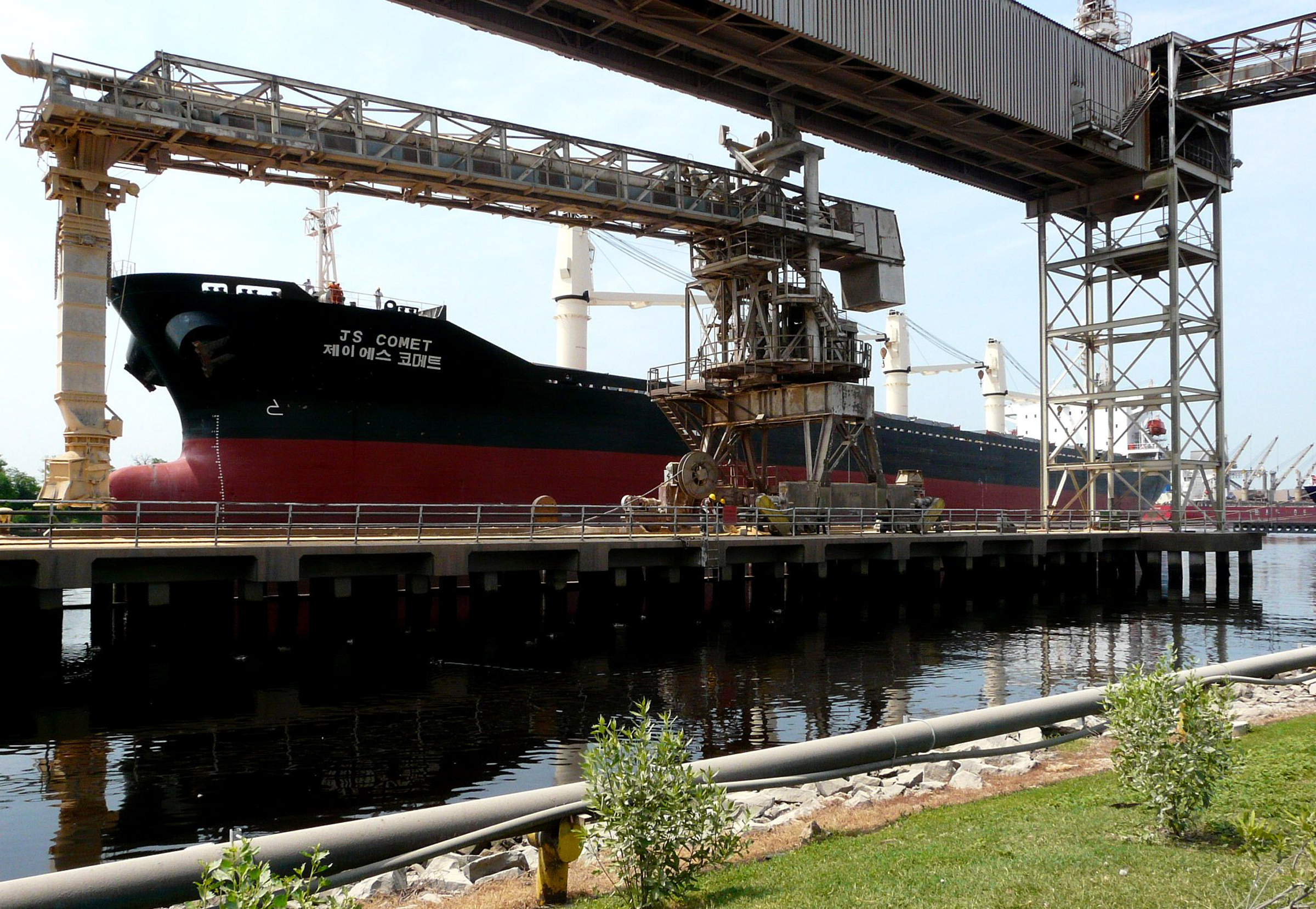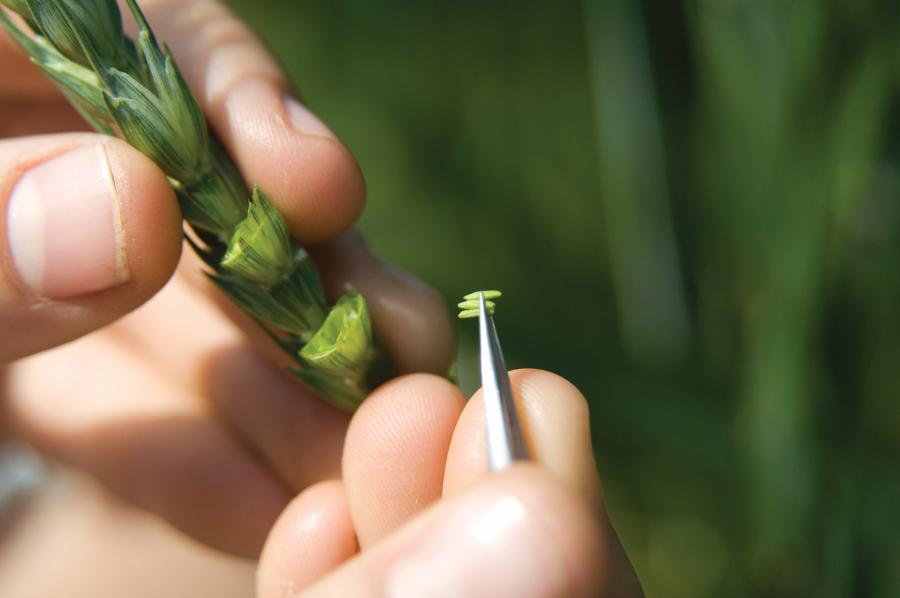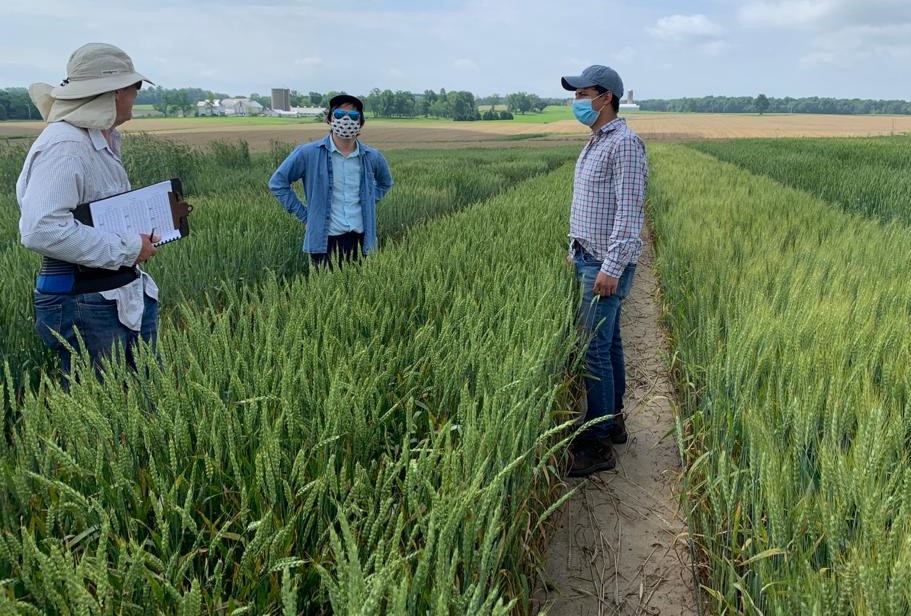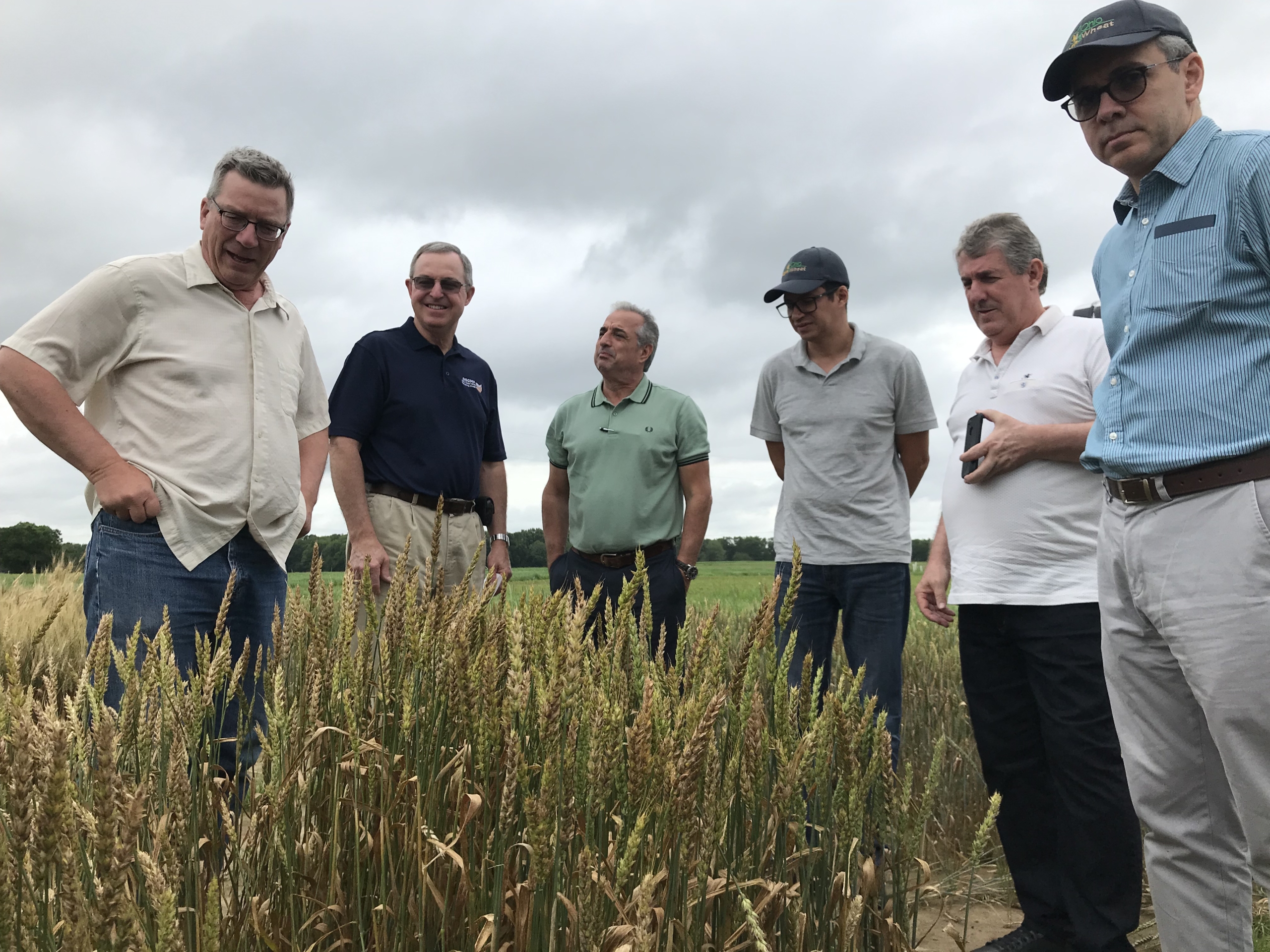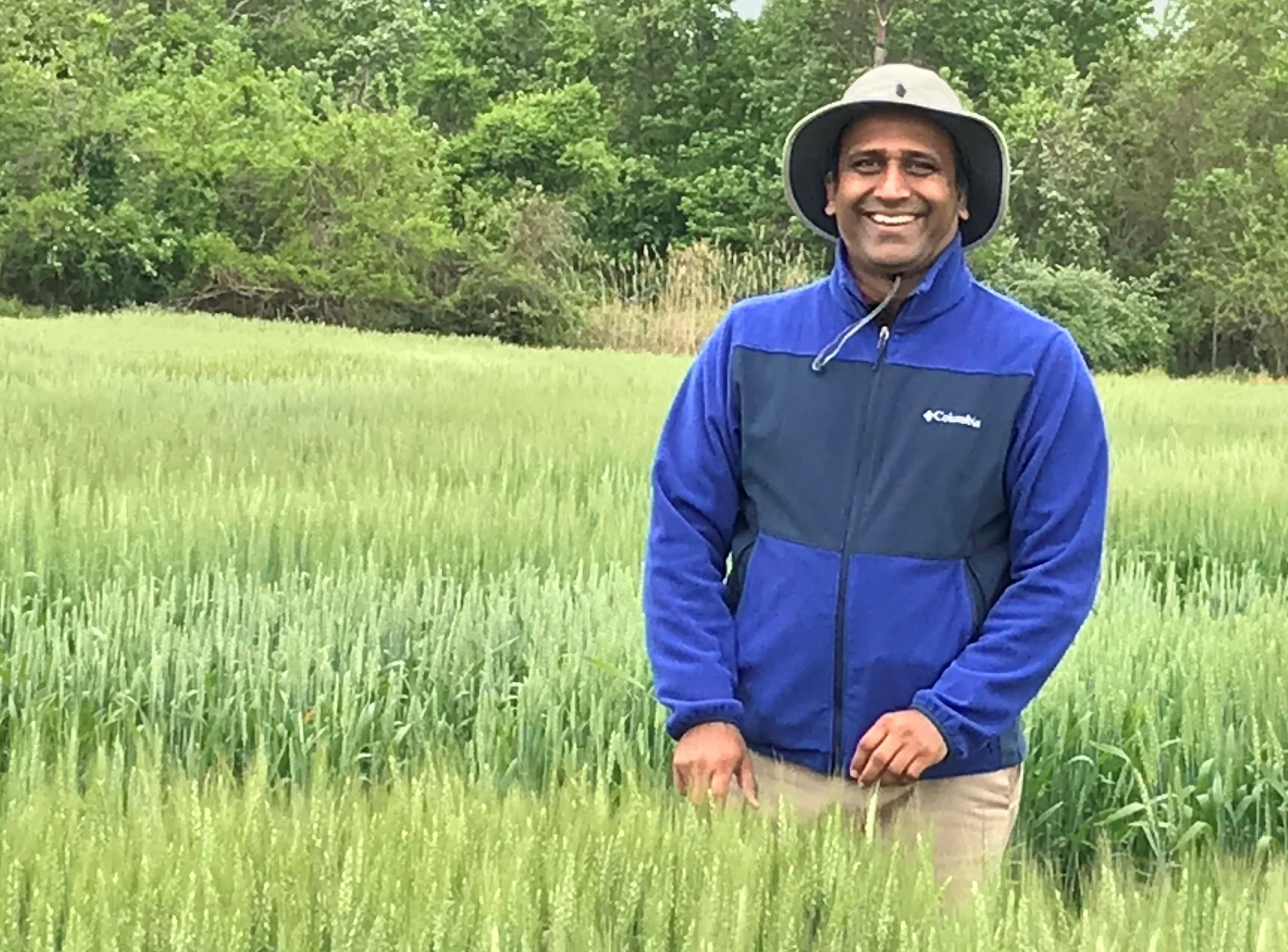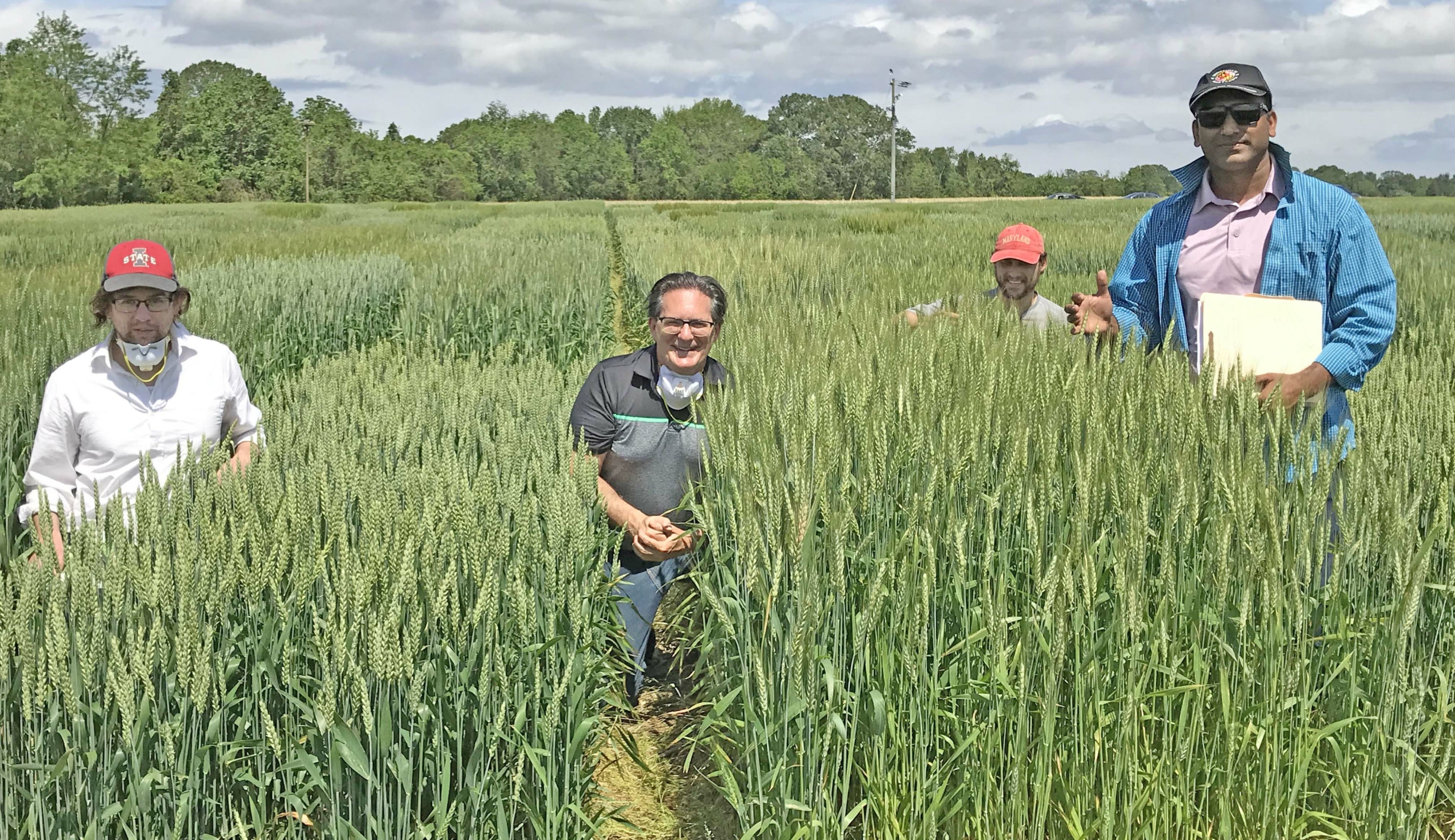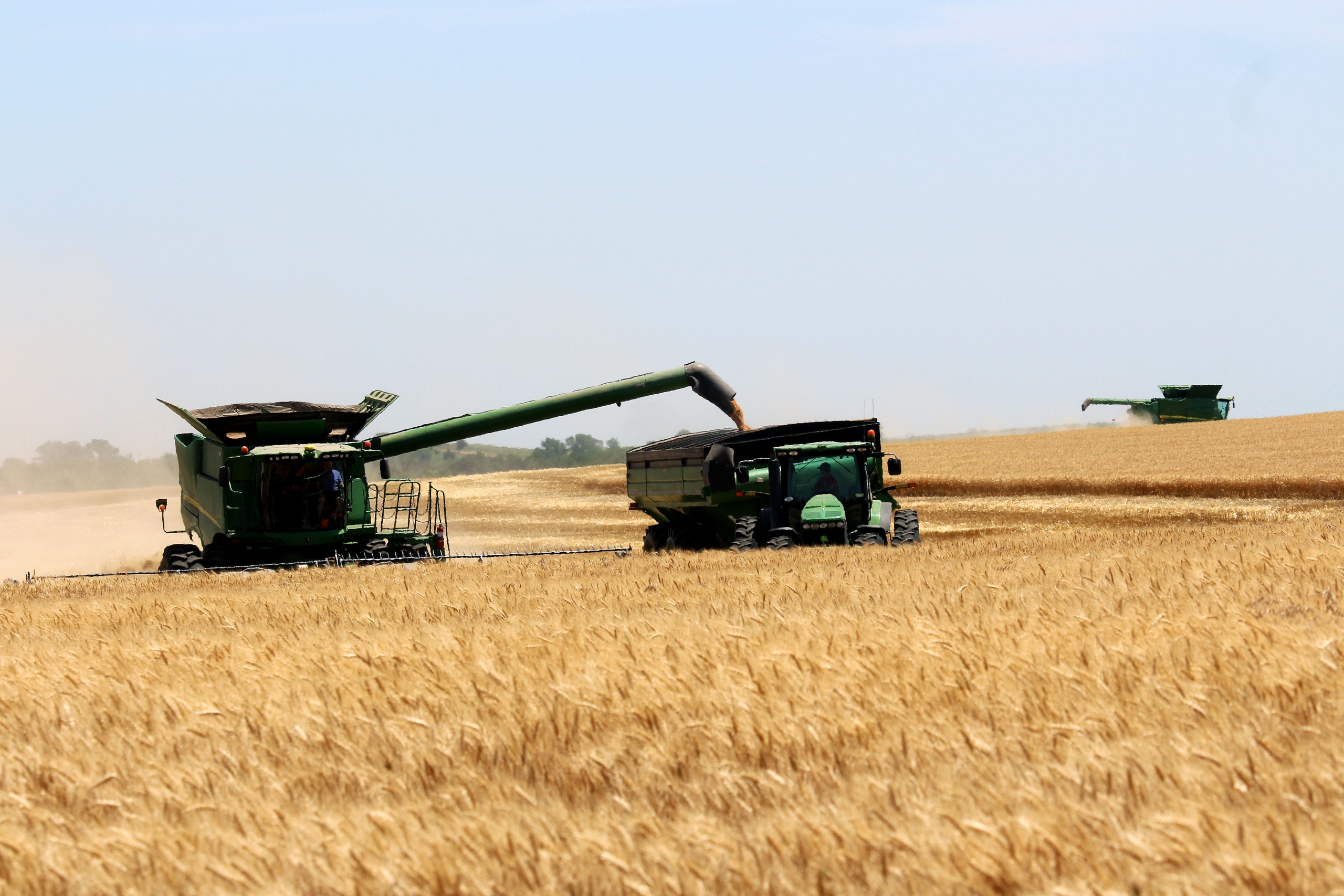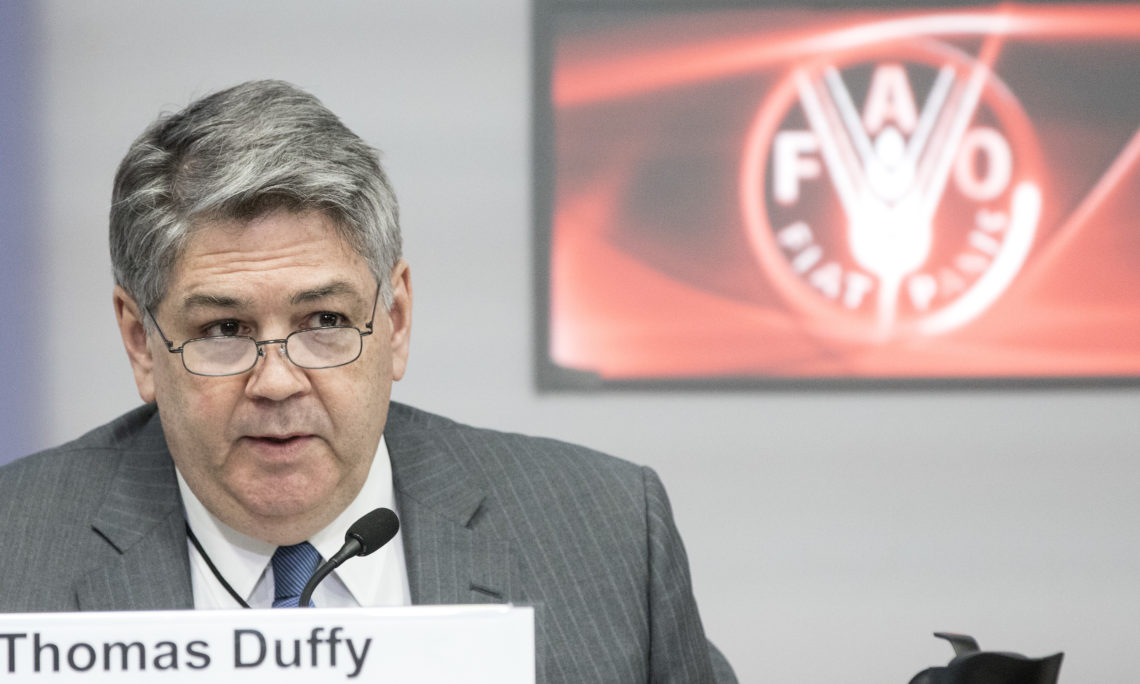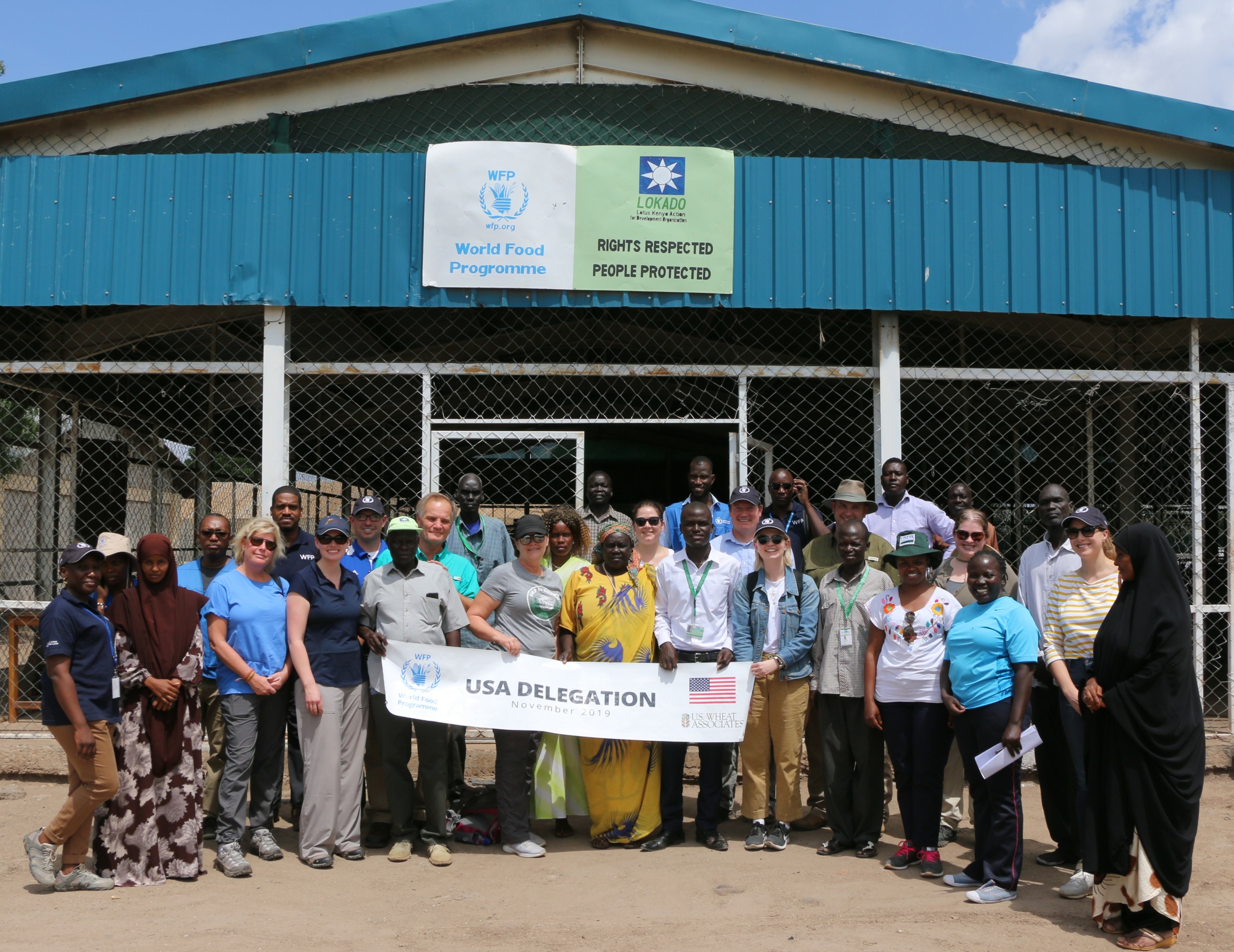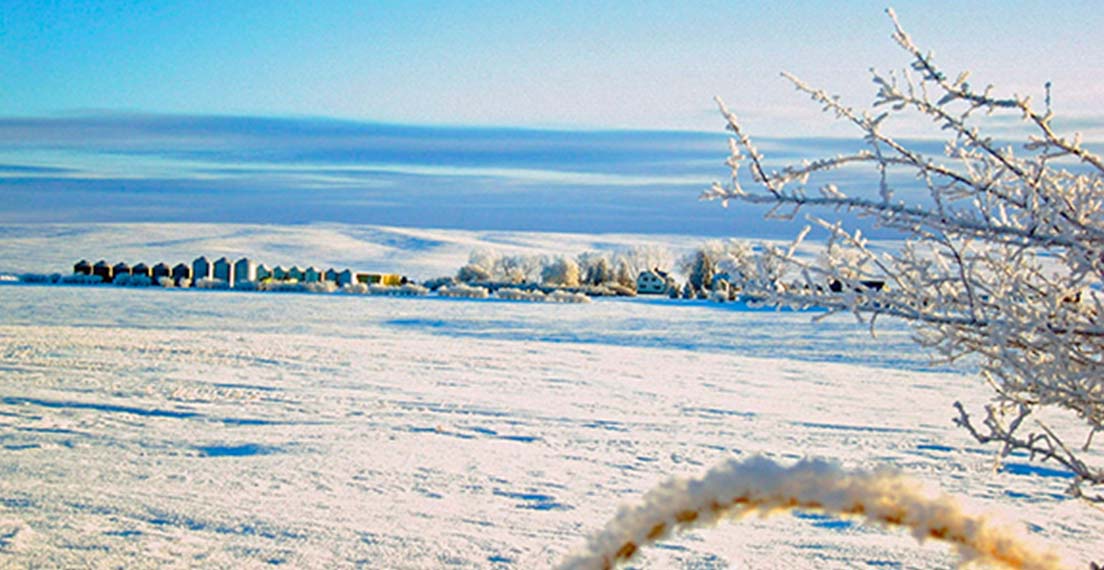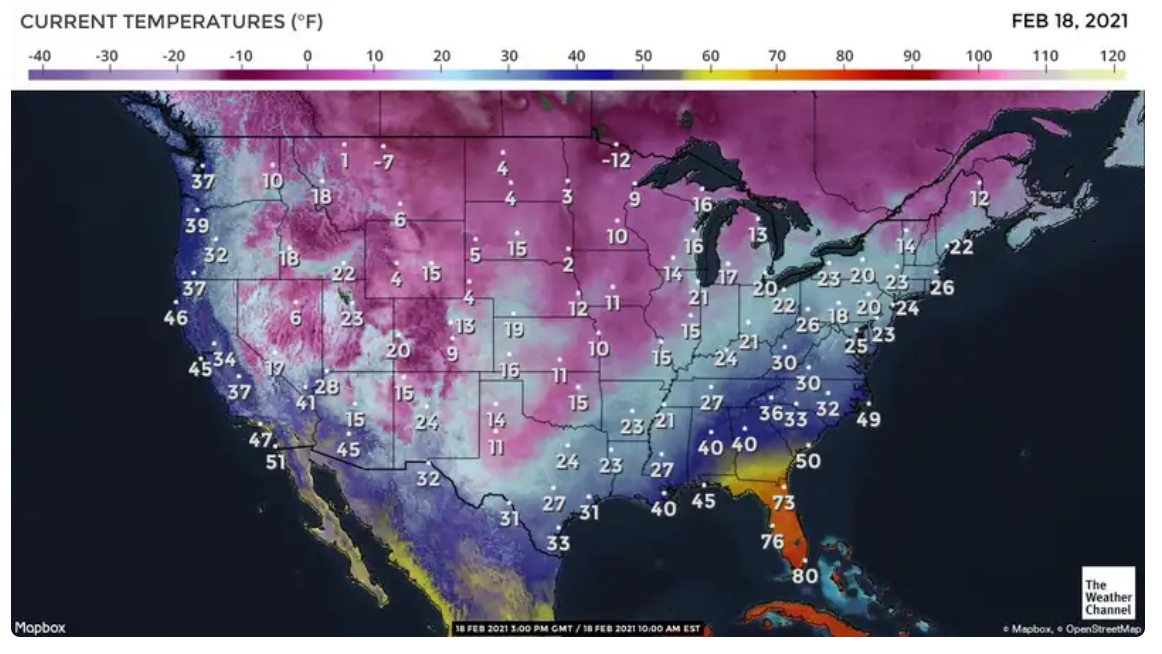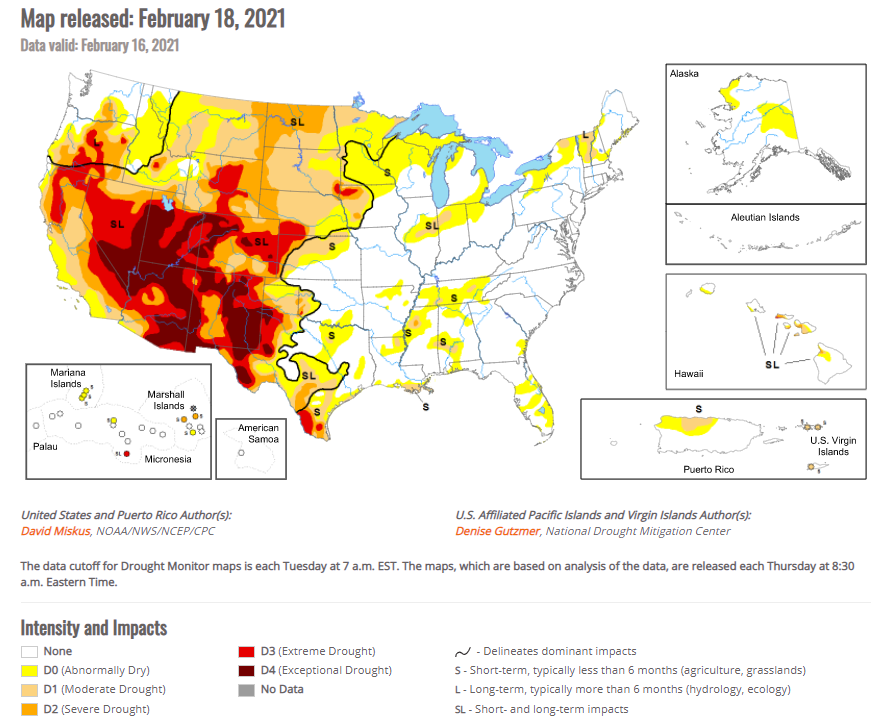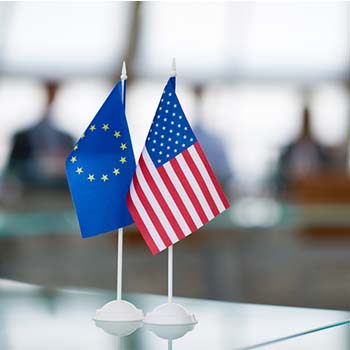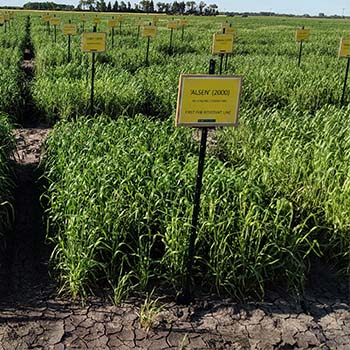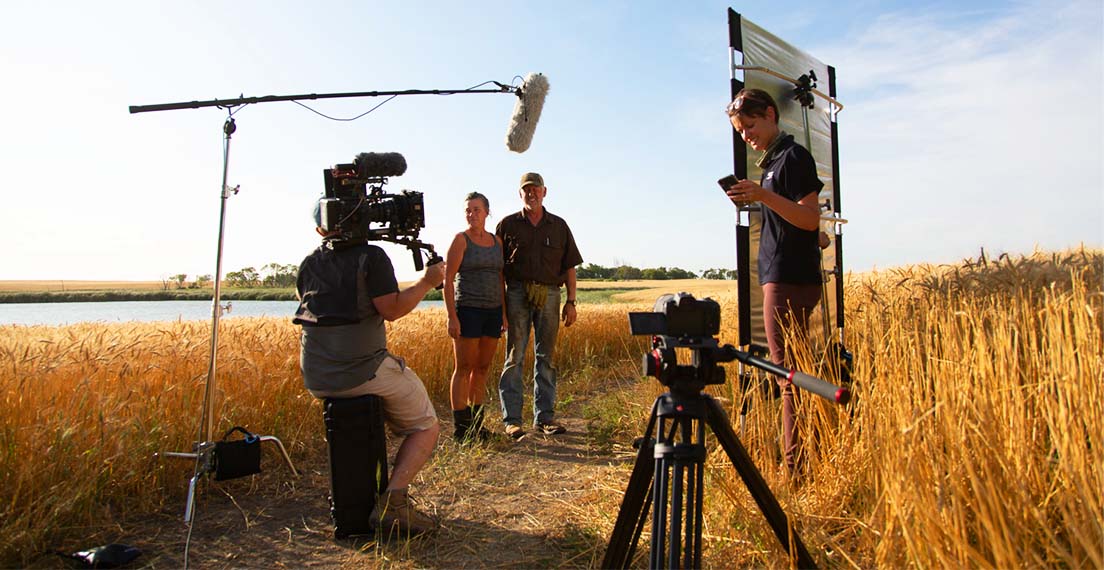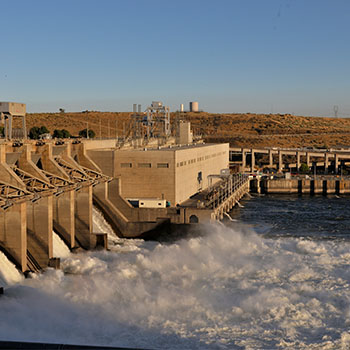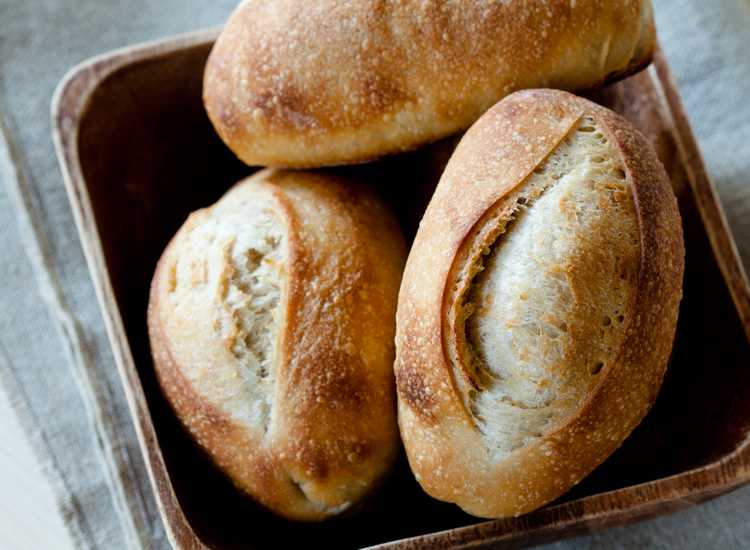Throughout 2021, the U.S. Wheat Associates (USW) Wheat Letter is featuring the many stories of the people, processes and passions that go into producing and delivering high-quality U.S. wheat to the world. Our focus will be on quality that starts with dedicated private and public wheat breeding programs, is fostered by hard-working farm families, is maintained by grain handlers and observed in hundreds of wholesome, nutritious wheat foods.
The journey of wheat begins in public and commercial breeding programs that maintain the process of improving varieties for farmers to grow, move into the supply chain and, ultimately, end up in food products around the world.
Public university breeding programs develop an estimated 65% of all U.S. wheat varieties, funded in part by farmers through state wheat commissions, royalties from the sale of public varieties, and USDA programs such as the Agricultural Research Service (ARS).
In this post, Wheat Letter offers broad information about public wheat breeding programs in South Dakota, North Dakota, Minnesota, Montana, and Wyoming. Future posts will cover breeding programs in other states.
South Dakota State University
With a primary goal to develop and release wheat varieties with high and stable yield potential and superior end-use quality for milling and baking, South Dakota State University’s (SDSU) wheat breeding program offers a strong return to farmers and downstream customers. The focus is on hard red spring (HRS), hard red winter (HRW) and hard white (HW) wheat development.
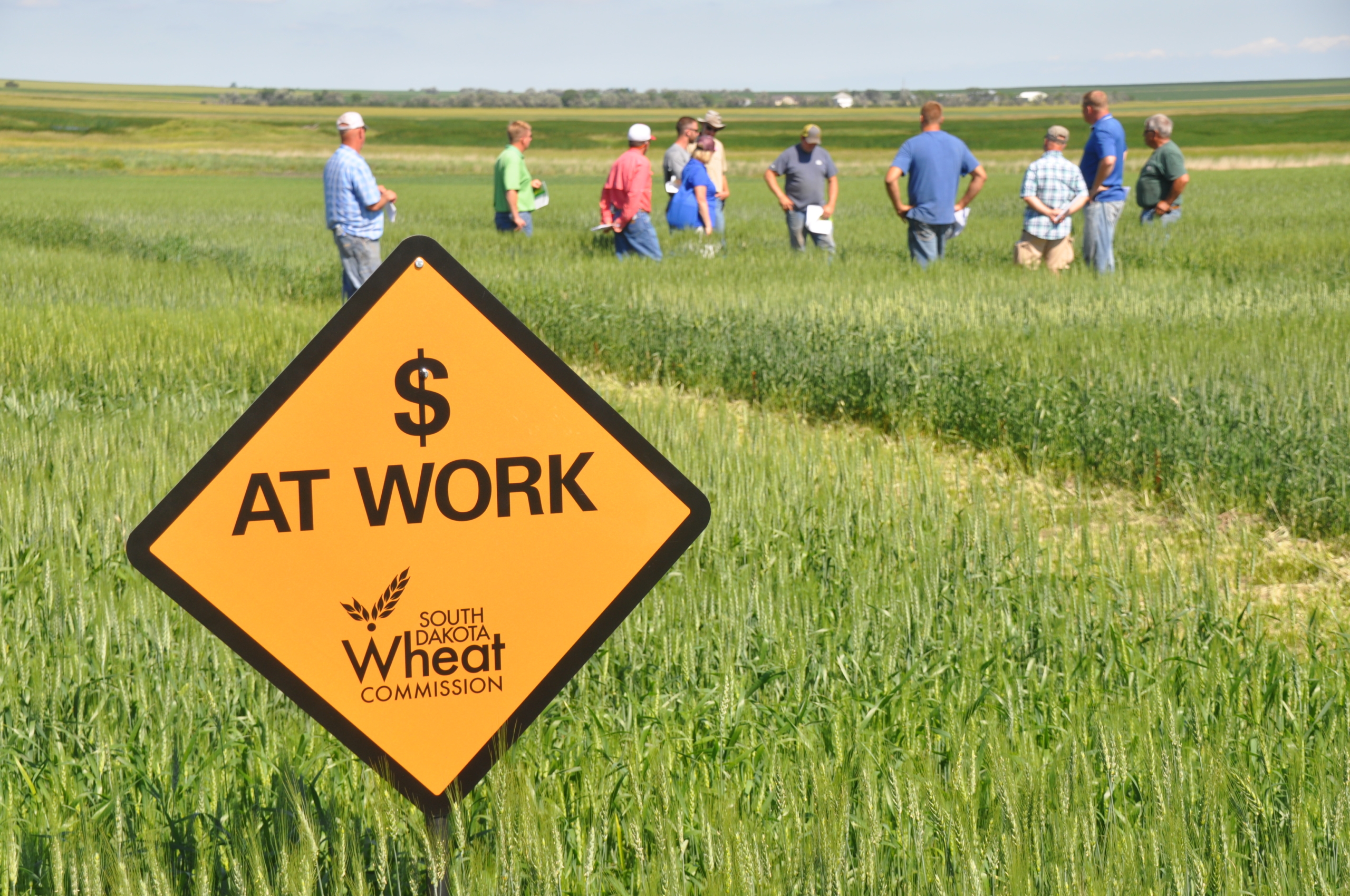
“Breeding is a long-term process,” said SDSU Associate Professor and Winter Wheat Breeder Sunish Kumar Sehgal. “We need to keep investing in breeding for the long-term good of the program.”
Farmers support the SDSU breeding program through wheat checkoff funding administered by the South Dakota Wheat Commission. More support comes from federal programs, seed sales and other stakeholders.
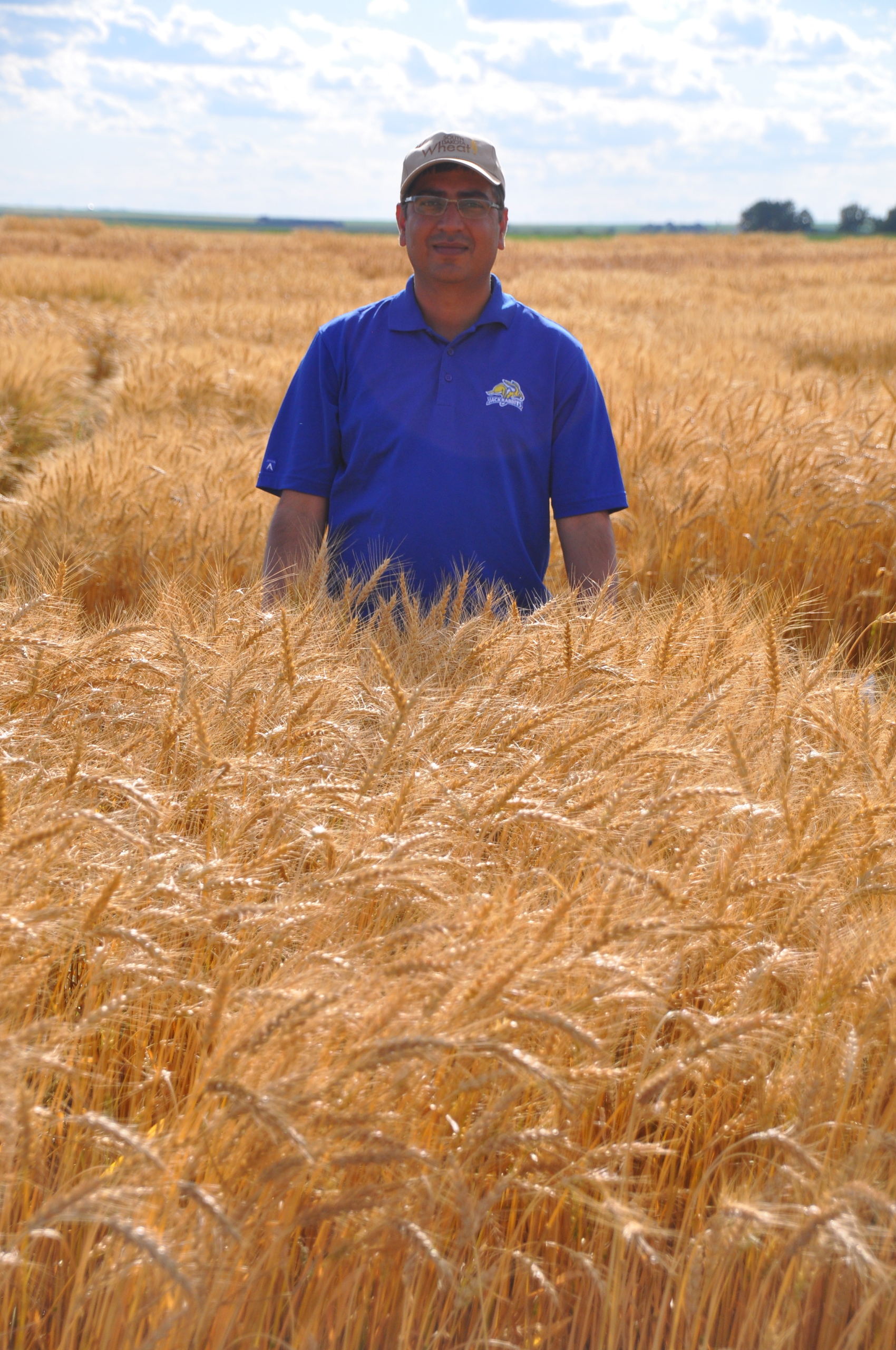
Dr. Sunish Sehgal
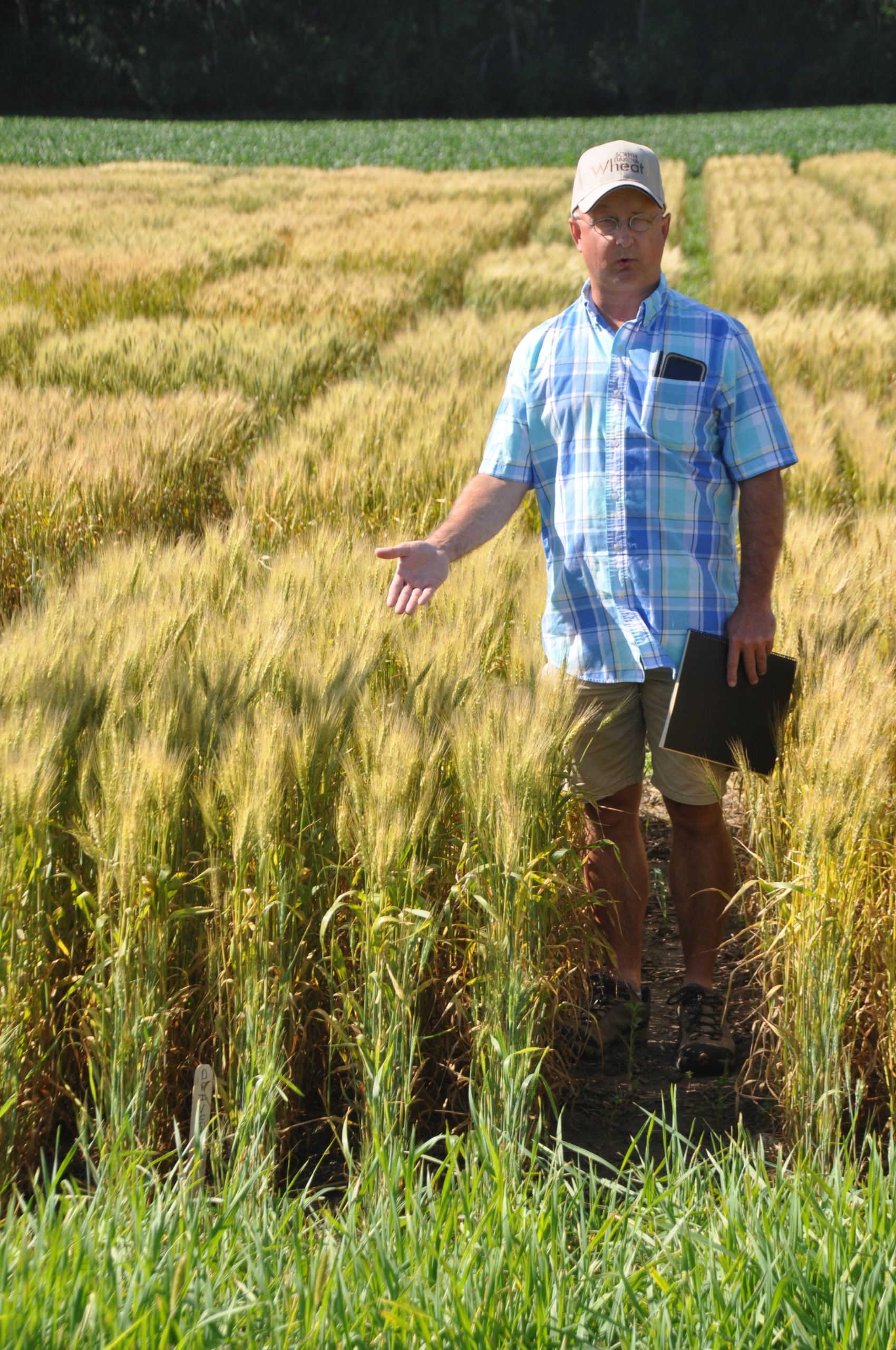
Dr. Karl Glover
Approximately 75% of South Dakota’s HRS planted area includes SDSU cultivars developed under the direction of Professor Karl Glover. With additional funding from the ARS through the U.S. Wheat and Barley Scab Initiative, Dr. Glover is also working collaboratively with Dr. Sehgal to develop new wheat varieties that are more resistant to fusarium head scab.
University of Minnesota
Historically, Minnesota HRS wheat has highly functional protein with a high-quality baking experience. Yet importers demand more consistent functional quality and domestic millers increasingly source grain from specific cultivars best suited for producing their products. That is why the University of Minnesota (UMN) HRS wheat breeding program is developing new disease-resistant, high-yielding cultivars with an increasing emphasis on improved end-use quality.
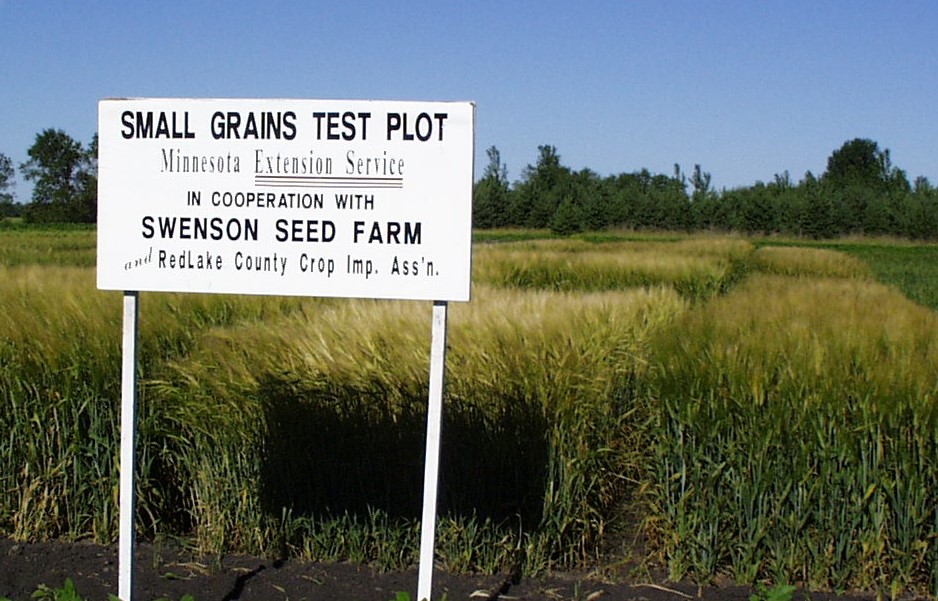
“Minnesota growers are by far the most progressive people I have ever worked with in terms of weighing economic, environmental and consumer demands,” said Charlie Vogel, CEO of the Minnesota Wheat Research and Promotion Council, which supports the UMN spring wheat breeding and genetics program led by Professor James Anderson. “They look beyond the farm gates, to a bigger picture of the customers we serve around the world.”

Dr. James Anderson. University of Minnesota photo.
Dr. Anderson said a comprehensive genetic and breeding approach is necessary to respond to farmer and end-use customer needs. UMN genetic studies identify wheat chromosomes and DNA markers that influence disease resistance and grain quality. Markers in turn help the breeder identify the best lines to work with, and the UMN team tests cultivars for commercial viability in field trials across the state.
North Dakota State University
North Dakota State University is home to three HRS, durum and HRW breeding programs that reflect the legacy of North Dakota wheat farmers to produce wheat that “provides special, inherent quality attributes that cannot be sourced elsewhere,” according to the North Dakota Wheat Commission (NDWC). The commission contributes about 40 percent of its budget to research, prioritizing investment in customer needs for end-use quality.
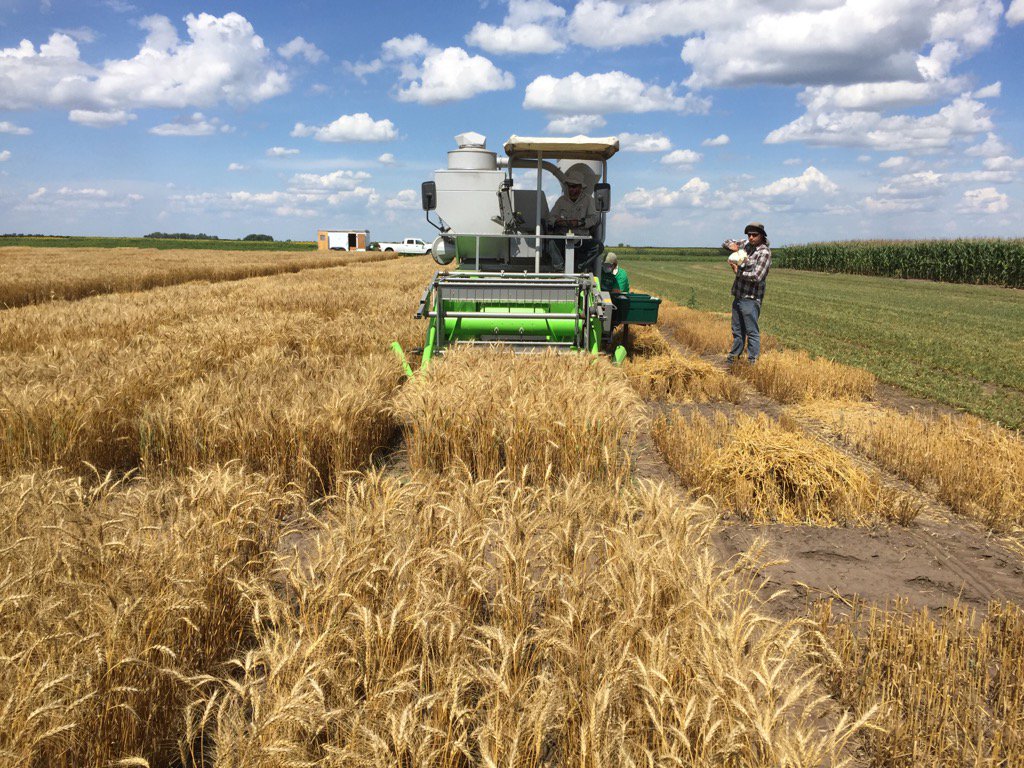
NDSU test plot, Carrington, N.D. NDSU photo.
The NDSU durum breeding program is the largest in the country, led by Dr. Elias Elias and a team of technicians and graduate students. The goal: maximize return to the farmer while yielding excellent quality durum to domestic and international markets. The majority – 90% or more – of durum planted in North Dakota are NDSU varieties.
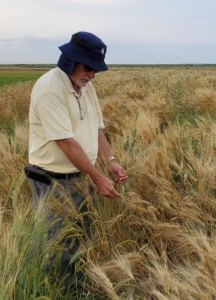
Dr. Elias Elias, NDSU durum breeder.
North Dakota produces more HRS wheat than any other state. The NDSU HRS breeding program makes high end-use milling and baking quality a priority while advancing agronomic traits. Dr. Andrew Green, who leads the HRS breeding program with his team of technicians, said: “Protein quality is essential to maintain high HRS demand so our program emphasizes developing balanced varieties that are profitable for producers and valued by end-users.”
The photo at the top of this page is a demonstration trial Dr. Green created that includes every HRS variety developed by NDSU over more than 100 years.
Dr. G. Francois Marais breeds HRW wheat varieties at NDSU. This program focuses on developing new varieties that are adapted to the northern Plains with improved winter-hardiness, disease resistance, yield and processing quality.
NDSU varieties selected for commercialization are produced through NDSU’s North Dakota Foundation Seedstocks program and marketed by the North Dakota Crop Improvement Association.
Montana State University
Montana has a wide range of farming ecosystems so the Montana State University (MSU) wheat breeding program tries to producing HRS, HRW, HW and durum varieties adapted to meet the challenges of these conditions. MSU bread wheat varieties provide exceptional milling, dough and baking characteristics, while durum varieties meet the demanding standards of the world’s best pasta producers.
Professor Phil Bruckner heads up MSU’s HRW breeding program and is very familiar with export market quality standards. In 2017, he joined a USW Wheat Quality Improvement Team to Taiwan and Thailand to discuss which quality characteristics end users value the most. Assistant Research Professor Jason Cook currently manages MSU’s spring wheat breeding and serves as one of the directors along with Dr. Bruckner of the MSU Cereal Quality Laboratory. Dr. Cook worked closely with former MSU spring wheat breeder Dr. Luther Talbert who left a legacy of producing high-quality HRS varieties when he retired late in 2019. In addition, the growing interest in the use of HW wheat for the Asian noodle market has instituted noodle quality evaluation.
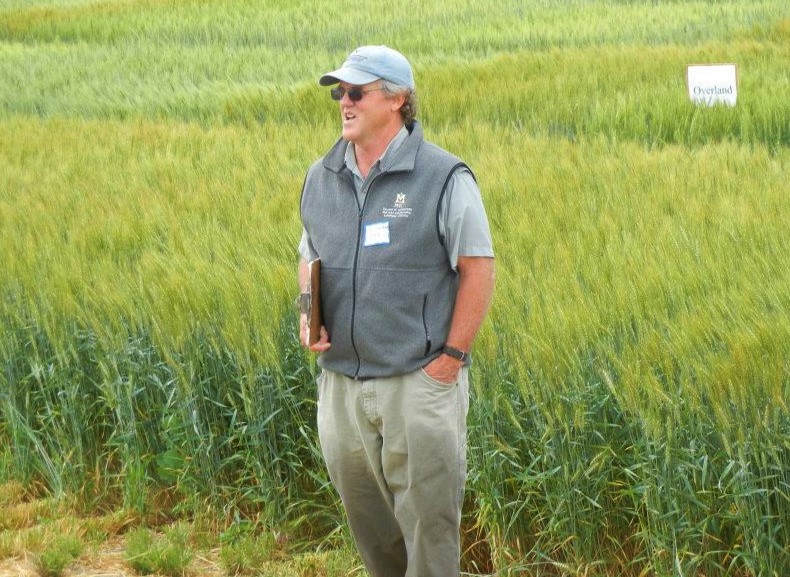
MSU HRW wheat breeder Dr. Phil Bruckner.
Over the years, MSU breeders developed hundreds of durum varietal lines and continue to do so. Dr. Mike Giroux, who heads MSU’s plant genetics program, is also breeding new durum lines. The first variety from that program, a high-yielding durum with desirable pasta quality traits including semolina extraction, pasta firmness and color, is now in the field with the MSU Foundation Seed program to increase seed stock for commercialization in 2022.
Through the Montana Wheat and Barley Committee, Montana farmers invest over $2 million every year in wheat and barley research at MSU and other institutions.
University of Wyoming
Because of Wyoming’s relatively small wheat production area, HRW and HW varieties developed by neighboring public breeding programs are tested at University of Wyoming (UW) agricultural experiment stations. With checkoff funds administered by the Wyoming Wheat Marketing Commission (WWMC), farmers created the Crop Research Foundation of Wyoming in 2012 to make sure they would always have wheat seed sources that perform well in Wyoming’s high-altitude, short-growing season.
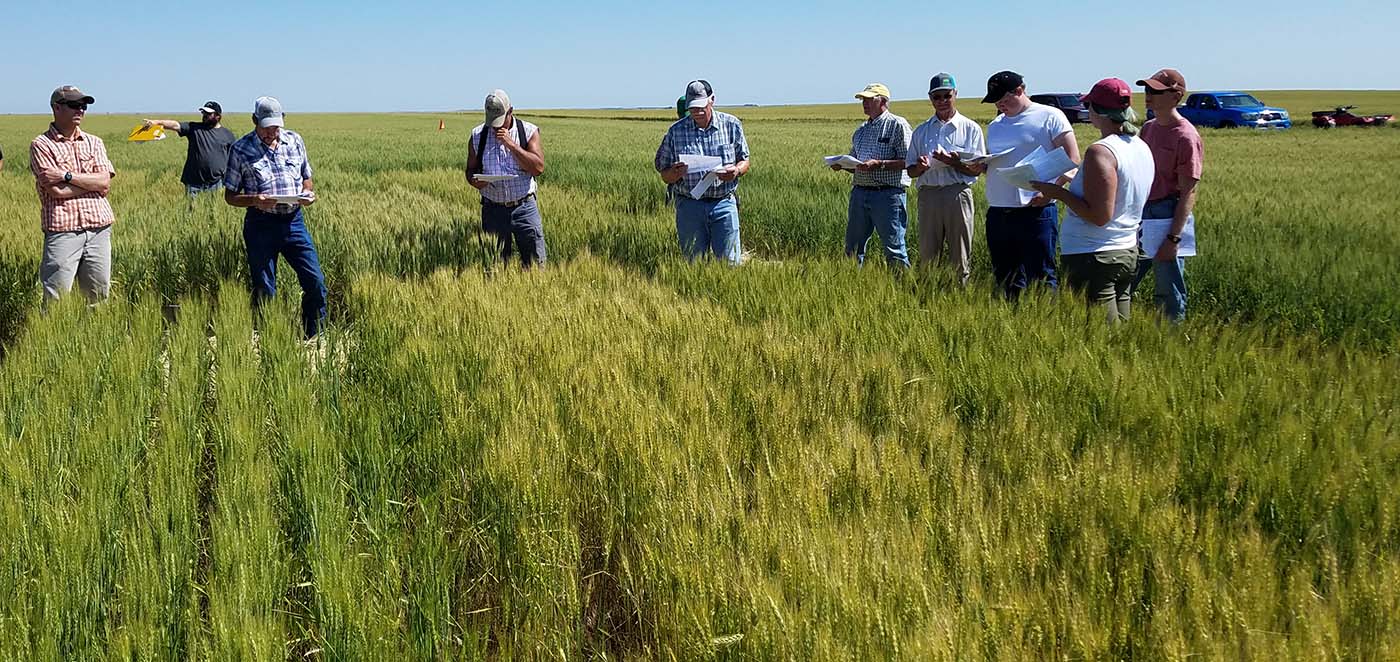
University of Wyoming wheat field trial.
Under this program, UW screens and develops elite HRW and HW lines from Colorado State University, Montana State University and the University of Nebraska. One example, cited by WWMC Executive Director Keith Kennedy, is “Spur,” a solid stem HRW variety developed at Montana State University that helps reduce damage from the wheat stem sawfly pest. Spur was licensed by the foundation in 2017 and sub-licensed to a private seed company for sale outside Wyoming. Kennedy said farmers seeded Spur on about 5% of Wyoming’s wheat area for the 2020/21 crop.
Read about other U.S. wheat public breeding programs:
Programs Serving Southern and Central Plains Producers
Programs Serving Soft Red Winter Producers
Programs Serving West Coast Producers
Read about other U.S. wheat commercial breeding programs:
BASF Corp. and Corteva
AgriPro and WestBred
